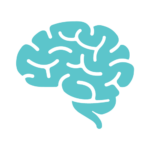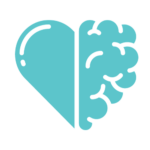Understanding Alcohol Addiction
This page discusses all you need to know about Alcohol Addiction and how we, at Akua, can help you. Click on a link for faster navigation:

AKUA and Alcohol Addiction
Seeking professional treatment for an alcohol use disorder (alcohol addiction, alcohol abuse) is the best way to stop drinking. Many individuals turn to alcohol (and other substances) as a coping strategy to deal with stress, negative feelings, boredom, and past traumas with no intention of becoming a heavy drinker. However, alcohol is very addictive. Over time, the individual will experience physical withdrawals after abstaining from chronic alcohol use.
AKUA Mind & Body’s Alcohol Rehabilitation Facilities initially aims to ease the withdrawal symptoms by close monitoring and prescribing a slow taper of benzodiazepines. Benzodiazepines work on the same receptors as alcohol in the brain and can help prevent and worsen the deadly withdrawal effects associated with alcohol. If an individual is experiencing withdrawal symptoms, they will need to be closely monitored in a hospital or residential treatment for approximately 72 hours. Once the acute withdrawal phase is over, our highly trained clinicians aim to identify the underlying triggers resulting in the alcohol use behavior.
The goal of treatment is to replace negative coping skills and patterns with positive cognitive behavioral skills. Alcohol treatment includes both a pharmacological approach and a psychotherapy approach. Medications are used to prevent cravings associated with alcohol, to lessen or prevent withdrawal effects.
Understanding Alcohol Addiction
Alcoholism, alcoholic, and alcohol use disorder are defined by alcohol dependence, which is the body’s physical inability to stop drinking. Alcohol consumption increases the release of “feel good” neurotransmitters in the brain, resulting in euphoria and decreased inhibition. Over time, more alcohol is needed to produce the same effects in the brain. In other words, individuals must drink more and more alcohol to experience the same effects. This leads to a cycle of increased drinking and an increased tolerance that eventually leads to dependence and addiction. When someone develops alcohol dependence, their body will go through a state of withdrawal in the absence of alcohol. Withdrawal symptoms include tremors, hallucinations, and convulsions that can lead to death if not detoxed properly.

Alcohol is one of the drugs that is most frequently abused world-wide. It is a common substance in many cultures and groups, and it is used in a variety of religious and secular rites. Just because alcohol is so widely available doesn’t mean that using it is always risk-free. Many people can consume alcohol without suffering adverse consequences. However, many have serious issues that are linked to their alcohol consumption. These individuals might start having issues in their social interactions, might not be giving their best effort at work or school, and might observe a steady deterioration in their health. A person who is alcohol addicted will realize they are experiencing detrimental effects in their lives yet find it impossible to give up drinking.
AKUA is committed to helping individuals seeking assistance with alcohol addiction with a secure and caring environment in which they can stabilize their situation, reach their full potential, and alter their perspective on life. We work hard to differentiate ourselves from other alcohol addiction treatment centers by providing outstanding service and responding quickly to requests. At AKUA, we understand how frightening it may be to battle an alcohol addiction, which is why we make it our goal to assist our patients in acquiring the skills necessary during their stay at our alcohol abuse treatment facility so they can overcome their challenges and find hope for the future.
Essential Facts About Alcohol Use Disorder
- Alcohol, formally known as ethanol or ethyl alcohol, is the active ingredient in beer, wine, and liquor.
- Alcohol is classified as a “sedative hypnotic” drug, meaning it can act as a depressant on the central nervous system at high doses.
- Sugars forms alcohol through fermentation in the presence of yeast. Alcohol can be produced from grapes, barley, potatoes, apples, and other plants that have high sugar content.
- Alcohol is the fourth leading cause of preventable death in the United States.
- Alcohol use disorders costs the United States $249 billion per year.
- There are approximately 88,000 alcohol-related deaths per year in the United States, and 3.3 million worldwide.
We accept most private insurance, and
handle all paperwork
Causes and risk factors for alcohol addiction
A few drinks with friends in a social setting and an alcohol misuse problem are very different things. In cases where an individual’s alcohol consumption negatively impacts other facets of their life and causes disturbance, seeking outside help for alcohol abuse treatment may be necessary. The main elements of an alcohol abuse diagnosis are losing control over the quantity and frequency of alcohol ingested, becoming obsessed with drinking, and continuing to drink regularly despite the negative effects.
Alcohol use can cause a person to have a wide range of difficult issues in almost every area of their life, and getting over alcoholism can be an extremely difficult endeavor. However, with the help of professionals, people can safely stop abusing alcohol, recover control over their actions, and adopt the lifestyle adjustments necessary to maintain long-term sobriety with the help of competent treatment.
Among the numerous variables that can affect an individual’s susceptibility to alcohol consumption and addiction are the following:

Genetic:
Compared to people whose family history does not involve alcohol dependency, those who have a parent or sibling with an alcohol use disorder are at a considerably higher risk of acquiring an alcohol use disorder themselves. Research on children who have alcohol addiction and whose biological parents were alcohol addicted but who were adopted at birth and raised by parents who did not battle with alcohol misuse supports the idea that genetics plays a role in the development of alcohol use disorder.

Environmental:
The acceptability and prevalence of alcohol use within a person’s culture can have a strong impact on whether that person will abuse or become dependent upon alcohol. Other environmental influences on alcohol abuse and alcohol use disorder include associating with peers who abuse alcohol and having a suboptimal ability to deal with stress.
Risk Factors
- Cultural acceptability of alcohol abuse
- Early exposure to alcohol
- Age (alcohol abuse is most common among young adults)
- Gender (alcohol abuse is more common among men than women)
- Family history of alcohol abuse and alcohol use disorder
- Family history of mental illness
- Poor coping skills
- Certain mental health disorders
- Impulsivity
- Insufficient stress management capabilities
- Peer use of alcohol
Signs and symptoms of alcohol addiction
Some common signs that may point to alcohol abuse or alcohol use disorder include the following:

Behavioral symptoms
- Spending considerable time obtaining, using, and recovering from the effects of alcohol
- Declining performance in school or at work
- Pattern of unexplained absences from work, school, or other responsibilities
- Abusing alcohol even after experiencing negative consequences related to prior alcohol use
- Using alcohol in situations where it is clearly dangerous to do so
- Reducing or abandoning important activities to acquire, use, or recover from alcohol
- Abandoning or reducing participation in significant activities
- Needing alcohol to celebrate successes or cope with setbacks
- Neglecting personal or household responsibilities
- Secretiveness regarding one’s whereabouts and/or activities
- Reckless, risky, and otherwise dangerous behaviors
- Trying and failing to end one’s use of alcohol

Physical symptoms
- Slurred speech
- Impaired coordination
- Strong cravings for alcohol
- Tolerance (needing increased amounts of alcohol to become intoxicated)
- Involuntary repetitive eye movements
- Muscle weakness
- Paresthesia (tingling sensation in fingers or toes)
- Insomnia

Cognitive symptoms
- Inability to focus or concentrate
- Impaired judgment
- Memory problems
- Needing to ingest increased amounts of alcohol to become intoxicated

Psychosocial symptoms
- Anger and aggressiveness
- Drastic mood swings
- Depression
- Suicidal ideation
Achieve Lasting Recovery!
Effects of alcohol addiction
Continuing to abuse alcohol can lead to a wide variety of negative outcomes, including the following:
- Heightened risk for certain cancers
- Physical injury related to impaired coordination and/or recklessness
- Strained interpersonal relationships
- Damage to the liver, pancreas, and heart problems
- Gastritis
- Ulcers
- Increased risk of developing certain cancers
- Injuries due to impaired cognition and motor functioning
- Diminished academic performance
- Substandard occupational performance
- Job loss and unemployment
- Family discord
- Damaged or failed interpersonal relationships
- Financial problems
- Legal problems, including arrest and incarceration
- Social isolation
- Depression
- Suicidal ideation
- Suicide attempts
- Lowered performance in school or at work
- Social isolation or ostracization
- Homelessness
The Diagnostic and Statistical Manual of Mental Disorders, 5th Edition (DSM-V), defines alcohol use disorder as having two or more of the following in a 12 month period.
- Alcohol is often taken in larger amounts or over a longer period than was intended.
- There is a persistent desire or unsuccessful efforts to cut down or control alcohol use.
- A great deal of time is spent in activities necessary to obtain alcohol, use alcohol, or recover from its effects.
- Craving, or a strong desire or urge to use alcohol.
- Recurrent alcohol use resulting in a failure to fulfill major role obligations at work, school, or home.
- Continued alcohol use despite having persistent or recurrent social or interpersonal problems caused or exacerbated by the effects of alcohol.
- Important social, occupational, or recreational activities are given up or reduced because of alcohol use.
- Recurrent alcohol use in situations in which it is physically hazardous.
- Alcohol use is continued despite knowledge of having a persistent or recurrent physical or psychological problem that is likely to have been caused or exacerbated by alcohol.
Alcohol Addiction and Dual Diagnosis
People who acquire an alcohol use disorder may also be more susceptible to other disorders. Clinicians frequently use the phrase “dual diagnosis” to describe individuals who struggle with multiple diseases. Among the most prevalent conditions that can co-occur with alcoholism are the following:
- Anxiety disorders
- Antisocial personality disorder
- Bipolar disorders
- Depressive disorders
- Conduct disorder
- Schizophrenia
Those with alcohol use disorders are more likely to have dual diagnoses, which emphasizes how critical it is to receive thorough treatment. Many people struggle with several problems without realizing it until they start receiving treatment. If dual diagnosis issues are not recognized and addressed, it may be more difficult for them to successfully recover from alcohol addiction over the long run.
Signs & Symptoms of Dual Diagnosis
The signs and symptoms of Dual Diagnosis (Co-occurring) disorders vary depending upon the specific mental health disorder and drug of choice.
For example, if an individual is struggling with marijuana abuse and schizophrenia, the signs and symptoms of these disorders will be drastically different than those of an individual who is struggling with cocaine addiction and bipolar disorder.
In general, individuals who are living with Dual Diagnosis (Co-occurring) disorders find functioning on a day-to-day basis to be significantly difficult, if not impossible. Many will struggle with the following:
- An inability to maintain employment
- An inability to maintain functional relationships
- Legal problems
- Financial issues
- Extreme mood swings or an inability to control their emotions
- Violent behavior
- Suicidal ideation
- Prostitution or unsafe sexual behavior

AKUA Mind & Body Dual Diagnosis Treatment Program
Treatment for co-occurring disorders aims at treating both the mental health disorder, and the substance use disorder with an integrative approach, including:
- Medical detoxification
- Psychotherapy
- Family therapy
- Social support groups
- Medications to treat mental health disorders
- Aftercare treatment
Effects of alcohol withdrawal and overdose
Effects of alcohol withdrawal
If a person tries to drastically reduce or stop drinking, they may experience several unpleasant and potentially hazardous symptoms associated with long-term alcohol dependence. Among the most typical indications of alcohol withdrawal are the following:
- Powerful cravings for alcohol
- Excessive perspiration
- Insomnia
- Nausea
- Vomiting
- Increased heart rate
- Anxiety
- Agitation
- Twitches, tics, and/or tremors
- Visual, tactile, or auditory hallucinations
- Seizure
- Hallucinations
- Tremors
Effects of alcohol overdose
Alcohol poisoning, another name for alcohol overdose, is a very serious and sometimes fatal condition. Following alcohol consumption, anyone exhibiting any of the following symptoms might require emergency medical attention:
- Vomiting
- Confusion
- Impaired coordination and balance
- Drop in body temperature
- Clammy and/or bluish skin
- Irregular heartbeat
- Slowed breathing
- Loss of consciousness
- Seizure
- Slowed, shallow, or otherwise irregular breathing
- Rapid, faint, or otherwise irregular pulse
- Hypothermia
- Cold, clammy skin
- Bluish tint to skin near lips and/or fingertips

Effects of alcohol use disorder on family and friends
As an individual sinks deeper into alcohol use disorder, they may begin to stray away from social interactions, distancing themselves from family and friends. They may even lash out at loved ones, and resort to telling lies in order to cover up their drinking habits. Financial problems are likely to arise due to not only the costs of supporting alcohol use disorder, but also the loss of productivity and regular work hours due to increased illness, hangovers, and other adverse effects.

Individuals with alcohol use disorder will often find themselves in stormy romantic relationships. Alcohol use disorder is strongly linked to codependency, verbal abuse, and physical abuse. Deterioration within a couple often stems from arguments, financial troubles, acts of infidelity, or worse, domestic violence.
Alcohol use disorder also decreases sex drive, which can bring even more problems into an already strained relationship.
Alcohol Withdrawal Treatment
Alcohol is extremely addictive because the body builds up tolerance and dependence on it. When someone goes without drinking for a short period, they will most likely experience alcohol withdrawal.
Withdrawal is one of the most life-threatening side effects associated with heavy alcohol use. In fact, physicians state that alcohol is often the most dangerous substance for the body to withdraw from, especially if attempted without medical supervision.
Withdrawal Symptoms
Symptoms associated with alcohol withdrawal range from mild to severe, and generally begin between 6 and 72 hours after the last drink.
Mild symptoms tend to begin within six to eight hours of discontinued alcohol use:
- Changes in behavior
- Mood swings
- Minor physical pains or disturbances
- Depression
- Anxiety
- Nausea & Vomiting
- Headaches
- Tremors
Moderate symptoms usually begin 12 to 48 hours after the last drink:
- High blood pressure
- Fever
- Irregular heartbeat or palpitations
- Confusion
- Sweating
Severe symptoms can be life-threatening and begin 48 to 72 hours after the last drink:
- Hallucinations
- Fever
- Seizures
- Confusion
- Agitation
Medical detoxification is necessary for severe withdrawal symptoms. Anyone experiencing the first signs of alcohol withdrawal needs to seek medical help immediately to prevent the deadly effects.

Withdrawal Treatment, How Can We Help
Those who are at risk of alcohol withdrawal should be monitored in a medical setting in case they need medical intervention. A slowly tapered dose of benzodiazepines is usually administered to prevent severe withdrawal effects such as seizures. Benzodiazepines work on the same receptors in the brain as alcohol, they can help to alleviate the physical withdrawal symptoms.
The individual is then weaned off the benzodiazepine medication until they are no longer at risk of physical alcohol withdrawal symptoms. Individuals may still experience alcohol cravings and the desire to drink. Therefore, they should undergo long-term alcohol treatment where they can develop coping skills to manage their triggers and control their cravings.
How Long Does Alcohol Withdrawal Last?
Depending on the severity of the alcohol use disorder, alcohol withdrawal usually begins six to eight hours after the last drink and can last up to six days.
Am I at Risk for Alcohol Withdrawal?
Those diagnosed with alcoholism are at risk for withdrawal. The diagnosis of alcoholism is based on an individual’s drinking history. There are several assessments health care professionals use to screen individuals for alcohol use including the 10-question Alcohol Use Disorders Identification Test (AUDIT), the abbreviated 3-question Audit-Consumption (Audit-C), and the CAGE questionnaire.
Answering “yes” to the following CAGE questions indicates a higher risk for alcohol withdrawal:
- Have you ever tried to stop drinking for a week or longer but only lasted a couple of days?
- Has drinking ever caused you trouble at home?
- Has drinking ever caused you trouble with your job?
- Have you ever felt the need to have a drink in the morning to steady your nerves or get rid of a hangover?
- Do you have “blackouts” (a period where you cannot recall any events after drinking)?
- Do you drink when you are stressed out, disappointed, or in a fight with someone?
- Have you ever had withdrawal symptoms from alcohol? These can include a racing heart, nausea, vomiting, tremors, or seizures.
- Have you ever operated a motor vehicle while under the influence?
- Have you ever tried to hide your drinking habits from your friends or family?
- Has anyone close to you expressed concern about your drinking?
- Do you often find yourself in a hurry to have your first drink of the day?
- Do you ever feel disappointed or uncomfortable if alcohol is not available in a social setting?
Alcohol withdrawal should always be managed in a controlled medical setting where medications can be given to alleviate the physical withdrawal symptoms and stabilize the individual’s vitals such as heart rate and blood pressure.
Why you should consider AKUA
for Alcohol Addiction Treatment
FAQ: Common Questions About Opioid Addiction
Akua Behavioral Health offers addiction treatment programs in a residential, community-based setting. Our clients stay in our home-like program, with 24-hour supervision to ensure their safety and comfort. Inpatient drug rehab gives clients the best chance at lasting recovery through highly-structured care for those struggling with drug, alcohol and/or their mental health.
Many clients stop experiencing withdrawal symptoms 3 to 7 days after starting our detox program. While the experience may vary due to various factors, Akua Behavioral Health is committed to providing our clients with safe and comfortable detox.
Akua Behavioral Health works with most major insurance plans to ensure quality addiction treatment is accessible for our clients.
AKUA works closely with most HMO, EPO, and PPO insurance plans including AmeriHealth, Humana, United Healthcare, Allcare Health, Highmark, UPMC Health Plan, and is In-Network with Anthem Blue Cross, Aetna, Cigna, HealthNet, Blue Cross/Blue Shield, Magellan, Molina, HMC Health Works, Tricare, Beacon Health Options, IKWO, Western Health Advantage, Prime, Multi Plan, EHN, ComPsych, First Health Network, USAMCO, Triwest, and more.
